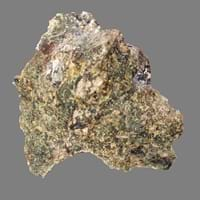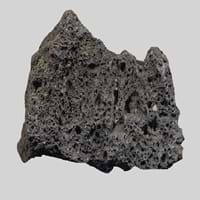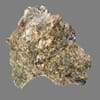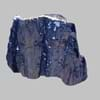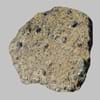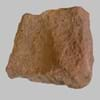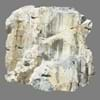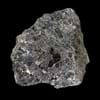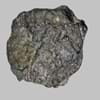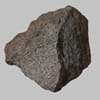Definition
Harzburgite is a plutonic rock of the peridotite group consisting largely of orthopyroxene and olivine
Scoria is a dark-colored extrusive igneous rock with abundant round bubble-like cavities
Discoverer
Unknown
Unknown
Etymology
From the name of a town in Harzburg, Germany
From late Middle English (denoting slag from molten metal), from Greek skōria refuse, from skōr dung
Class
Igneous Rocks
Igneous Rocks
Sub-Class
Durable Rock, Medium Hardness Rock
Durable Rock, Medium Hardness Rock
Other Categories
Coarse Grained Rock, Opaque Rock
Fine Grained Rock, Opaque Rock
Texture
Phaneritic
Vesicular
Color
Dark Greenish - Grey
Black, Brown, Dark Grey to Black, Red
Durability
Durable
Durable
Scratch Resistant
Yes
Yes
Appearance
Rough and Shiny
Glassy and Vesicular
Interior Uses
Decorative Aggregates, Homes, Interior Decoration
Decorative Aggregates, Interior Decoration
Exterior Uses
As Building Stone, As Facing Stone, Garden Decoration, Office Buildings, Paving Stone
Garden Decoration, Paving Stone
Other Architectural Uses
Curbing
Curbing
Construction Industry
As Dimension Stone, Cobblestones
Cement Manufacture, Construction Aggregate, for Road Aggregate, In landscaping and drainage works
Medical Industry
Not Yet Used
Not Yet Used
Antiquity Uses
Artifacts, Monuments, Sculpture, Small Figurines
Artifacts, Monuments, Sculpture
Commercial Uses
Creating Artwork, Gemstone, Jewelry, Source of Chromite, Platinum, Nickel and Garnet, Source of Diamonds
As a traction material on snow-covered roads, Creating Artwork, High-temperature insulation, In gas barbecue grills
Types
Not Available
Not Available
Features
Constitutes upper part of the Earth's mantle, Generally rough to touch, Is one of the oldest rock
Available in Lots of Colors and Patterns, Generally rough to touch, Surfaces are often shiny
Archaeological Significance
Famous Monuments
Data Not Available
Data Not Available
Famous Sculptures
Data Not Available
Data Not Available
Formation
Harzburgite is a fine-grained, hard rock which is a type of metasomatite, essentially altered basalt. It forms with or without crystallization, either below the surface as intrusive rocks or on the surface as extrusive rocks.
Scoria forms when magma containing huge amount of dissolved gas flows from a volcano during an eruption.
Mineral Content
Amphibole, Chromite, Garnet, Magnesium, Olivine, Phlogopite, Plagioclase, Pyroxene
Apatite, Biotite, Calcite, Feldspar, Hematite, Hornblade, Ilmenite, Magnetite, Olivine, Pyroxene, Quartz, Silica
Compound Content
Ca, Fe, Mg, Potassium, Silicon Dioxide, Sodium, Titanium Dioxide
Ca, NaCl
Types of Metamorphism
Impact Metamorphism
Burial Metamorphism, Cataclastic Metamorphism, Contact Metamorphism
Types of Weathering
Chemical Weathering, Mechanical Weathering
Biological Weathering, Chemical Weathering, Mechanical Weathering
Types of Erosion
Chemical Erosion, Sea Erosion
Chemical Erosion, Coastal Erosion, Glacier Erosion
Grain Size
Coarse Grained
Fine Grained
Fracture
Irregular
Conchoidal
Porosity
Less Porous
Highly Porous
Luster
Shiny
Subvitreous to Dull
Cleavage
Imperfect
Perfect
Specific Gravity
3-3.01
Not Available
Transparency
Translucent to Opaque
Opaque
Density
3.1-3.4 g/cm3
Not Available
Specific Heat Capacity
Not Available
Resistance
Heat Resistant, Pressure Resistant, Wear Resistant
Heat Resistant, Impact Resistant, Pressure Resistant, Wear Resistant
Deposits in Eastern Continents
Asia
Japan, Oman
Afghanistan, Indonesia, Japan, Russia
Africa
South Africa
Ethiopia, Kenya, Tanzania
Europe
France, Germany, Italy, Venezuela
Greece, Hungary, Iceland, Italy, Turkey
Others
Hawaii Islands, Mid-Atlantic Ridge
Not Yet Found
Deposits in Western Continents
North America
Canada, USA
Bahamas, Barbados, Canada, Costa Rica, Cuba, Jamaica, Mexico, USA
South America
Not Yet Found
Argentina, Chile, Ecuador, Peru
Deposits in Oceania Continent
Australia
Not Yet Found
New Zealand, Western Australia
